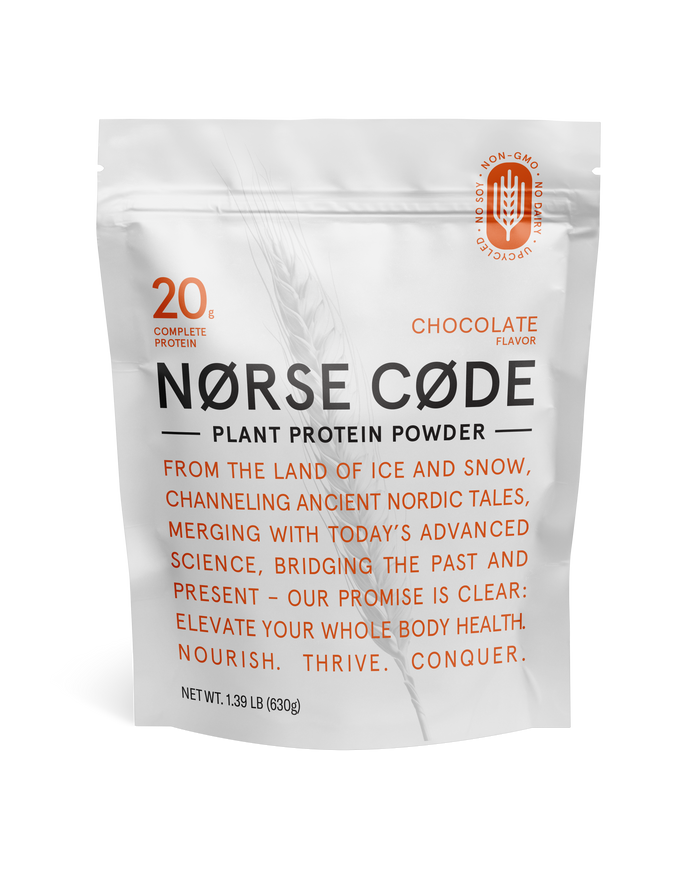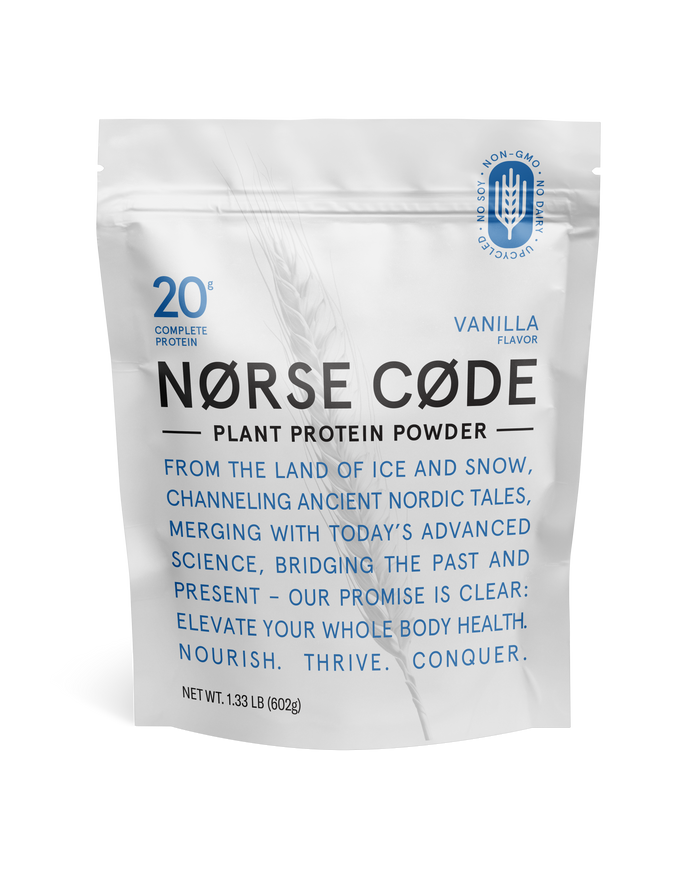
Many of us turn to plant protein powder for a cleaner, more sustainable way to fuel workouts and daily life. But not all products live up to that promise. Unregulated processing, hidden additives, and even heavy metals can sneak into your bag—threatening the very strength you’re trying to build.
This blog cuts through the confusion, revealing the real risks behind poorly sourced plant proteins. We’ll cover topics like digestive challenges, hidden allergens, quality red flags, and the importance of transparent labeling. Plus, you’ll learn how to choose clean, powerful fuel that truly supports your goals—without sacrificing your health.
Minimal Oversight: Why Quality Varies So Widely
Protein powders—whether plant-based or otherwise—aren’t tightly regulated. The FDA has minimal direct oversight of these supplements, leaving quality control mostly up to each manufacturer. This means:
- Big Differences in Purity: Some brands meticulously test for contaminants; others do the bare minimum.
- Inconsistent Ingredient Sourcing: Cheap shortcuts can introduce heavy metals or hidden additives.
- Flashy Marketing vs. Actual Quality: Labels might promise “all-natural” or “organic,” but those terms can be misleading without certifications and third-party testing.
Bottom line: Before you pick a plant protein powder, understand that not all are created equal. Look beyond marketing buzzwords and check for real certifications and quality standards. For an in-depth look at what a truly clean plant-based option can offer, see our Ultimate Guide to Plant-Based Protein.
Plant Protein Side Effects and Common Pitfalls
Digestive Battles
Switching to concentrated plant proteins sometimes shocks the gut. Especially if you’re new to high-fiber or legume-based shakes, you might experience:
- Bloating or Gas: Your body may need time to adapt to increased fiber and certain complex carbs.
- Possible GI Upset: Artificial thickeners like carrageenan or xanthan gum can worsen digestion for some.
If you’ve struggled with post-shake discomfort, be sure to check out our article on Why Vegan Protein Powders Are Easier to Digest. It explores how thoughtful formulation can help bypass bloating and keep you feeling light.
Artificial “Warriors” and Sweeteners
Some powders rely on sugar alcohols, artificial flavors, and chemical fillers to mask low-quality ingredients or improve texture. These unfriendly extras can ferment in your gut, causing bloating, discomfort, or spikes in blood sugar. Look out for:
- Xanthan Gum, Carrageenan: Common thickening agents that can trigger inflammation in sensitive individuals.
- Sugar Alcohols (e.g., Sorbitol, Erythritol): Often behind bloating or gas.
Hidden Dangers: Allergic Reactions and Cross-Contamination
Pea Protein and Peanut Allergies
While pea protein is a popular plant-based choice, it can spell danger if you have a peanut allergy. Research suggests roughly 1 in 20 people with peanut allergies could cross-react to pea protein.
Symptoms to Watch For
- Itching, hives, or swelling
- Nasal congestion or shortness of breath
- Rapid heartbeat or digestive pain
Why It Happens: Peas and peanuts share similar protein structures. Concentrated pea protein often delivers a much stronger dose than you’d get from eating whole peas, raising the risk for severe reactions.
Other Legume Sensitivities
Soy, lentils, or other legumes can cause issues for certain warriors. If you know you’re prone to legume allergies, check the allergen label carefully before choosing any plant protein.
Quality Control Gaps: Heavy Metals and Additives
Heavy Metal Truth
Recent tests by groups like the Clean Label Project have exposed dangerously high levels of lead and other metals in many plant-based proteins. Some findings:
- 75% of tested plant protein brands contained measurable lead.
- Organic products sometimes had even higher heavy metal levels, often due to contaminated soil.
Why This Matters: Heavy metals like lead or arsenic can accumulate over time, posing serious long-term health risks. To learn more about how clean plant protein can still be healthy and beneficial, explore Is Plant-Based Protein Healthy? Debunking Common Myths. It covers how quality sourcing and responsible processing keep contaminants at bay.
Additive Assault
Many protein powders aim for that “perfect” texture or taste by piling on fillers:
- Maltodextrin: A cheap sweetener that can spike blood sugar and cause digestive distress.
- Carrageenan: Used as a thickener but linked to GI inflammation.
- Artificial Flavors: Can mask poor-quality protein sources but offer no real benefits to your body.
Reading Labels Like a Pro: Your Clean Fuel Guide
Step One: Check the Protein Source
- Opt for recognized whole-food bases: pea, hemp, or upcycled barley.
- Watch for “protein spiking” with cheap amino acids like taurine. If the label lists these without specifying total protein from whole foods, be cautious.
Step Two: Look for Third-Party Testing
- NSF or Informed-Sport seals show the product was tested for purity and banned substances.
- USP certification can confirm label accuracy.
Step Three: Examine the Ingredients List
- The best formulas highlight real foods at the top—like pea protein, barley protein, or seeds.
- Avoid long, chemical-sounding additives. Minimalism is a good sign of quality.
Who Should Be Extra Cautious?
Allergy Warriors
If you have a peanut or soy allergy, do your homework. Concentrated pea or soy proteins might cause reactions more severe than whole-food legumes.
Sensitive Digestion
Those with IBS or other GI issues should look for simpler, low-fiber formulas (or blends that skip artificial gums altogether). Starting with smaller servings can help gauge how your body responds.
Pregnant Warriors
Pregnancy calls for pure, low-risk ingredients—heavy metals and untested herbs have no place in your routine. Stick to trusted brands with clear transparency on sourcing and safety.
What to Demand from Clean, Powerful Protein
1. Honest, Transparent Sourcing
- Manufacturers should reveal exactly where they get their plant protein.
- Upcycled or responsibly grown ingredients help reduce environmental impact.
2. Rigorously Tested
- Seek out certifications like NSF, Informed-Sport, or USP.
- If a brand can’t provide lab results, question its integrity.
3. Minimal Processing & Additives
- Clean formulas avoid artificial sweeteners, gums, and cheap fillers that harm digestion.
- Look for short ingredient lists with whole-food or gently refined protein sources.
4. Sustainability and Ethics
- Align with brands taking an eco-friendly approach—like using upcycled barley to minimize waste or employing low-impact farming methods.
- A brand’s environmental choices reflect the overall care they put into each bag.
Conclusion: Fuel for Lasting Strength
Clean, plant-based protein fuels your journey—if it’s done right. Unfortunately, some powders hide behind claims of being “natural” or “healthy” while packing in heavy metals, allergens, and synthetic fillers. For modern warriors, these shortcuts can undercut your goals, sabotage your digestion, and even threaten your health long term.
What can you do?
- Scrutinize ingredient lists, watch for third-party testing, and skip artificial sweeteners.
- Remember that protein powders supplement your diet—they shouldn’t replace real, whole foods.
- Choose brands that value quality, ethics, and transparency. In other words, go for the bold, clean choice that truly supports your strength—without hidden compromises.
Ready to fuel up responsibly? Check out Why Vegan Protein Powders Are Easier to Digest for tips on sidestepping common GI pitfalls, or dive into Is Plant-Based Protein Healthy? Debunking Common Myths to see how sustainable sourcing and smart formulation can yield real benefits.
Author’s Note
At NØRSE CØDE, we believe in forging bold, plant-based products that honor your body and the Nordic spirit of resilience. We rigorously source and test our ingredients—because warriors deserve clean, powerful fuel they can trust. If you’re ready to ditch the guesswork and conquer your goals with confidence, look for a protein that’s as authentic as you are.
NØRSE CØDE Chocolate Plant Protein Powder
- Regular
- $44.50
- Sale
- $44.50
- Regular
-
- Unit Price
- per
NØRSE CØDE Vanilla Plant Protein Powder
- Regular
- $44.50
- Sale
- $44.50
- Regular
-
- Unit Price
- per
NØRSE CØDE Stainless Shaker
- Regular
- $35.00
- Sale
- $35.00
- Regular
-
- Unit Price
- per




